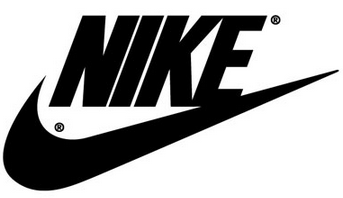
Registered Trademark of Nike
Five individuals have pleaded guilty to conspiring to import misclassified merchandise. Each faces up to five years in federal prison and a $250,000 fine. This case is being investigated by U.S. Immigration and Customs Enforcement’s (ICE) Homeland Security Investigations (HSI).
“The trademark laws in the United States were created to protect the investment of American manufacturers such as Nike as well as consumers,” said U.S. Attorney William J. Hochul Jr., Western District of New York. “These laws are designed to create a level playing field for businesses and protect consumers who might unwittingly purchase inferior counterfeit goods. Our office will continue to aggressively enforce customs laws for the benefit of American businesses and those who purchase their products.”
“Selling counterfeit goods is stealing,” said James C. Spero, special agent in charge of HSI Buffalo. “HSI is committed to ensuring the legitimate copyright holders are protected from individuals who are only motivated by greed. People and organizations which produce and sell counterfeit products undermine the U.S. economy; create inferior and sometimes dangerous products; and jeopardize public safety.”
Xiao Cheng Lin, 50, and his wife, Ling Zhen Hu, 51, both of New York, pleaded guilty before U.S. District Judge Richard J. Arcara to conspiring to import misclassified merchandise. Hu, a native of China, worked for an individual who imported thousands of pairs of sneakers from China that bore the Nike “swoosh” logo and Nike labeling, but were not genuine Nike sneakers. Hu then negotiated the sale of large quantities of the mislabeled sneakers to Malik Bazzi, 44, of Montreal, who then sold them to customers throughout the United States — including in Buffalo — via his warehouses in Manhattan and Brooklyn. Bazzi is currently scheduled to be sentenced Feb. 1, 2013. Hu admitted that she negotiated the sale of 7,500 pairs of sneakers to Bazzi.
Lin, also a native of China, worked with his wife, delivering the 7,500 pairs of sneakers to Bazzi. The HSI investigation revealed that Bazzi’s customers then sold the counterfeit Nike sneakers on the street and in retail stores to customers for about half the price of genuine Nike sneakers.
As part of their plea agreements, both Lin and Hu agreed to abandon any claim to more than $600,000 and dozens of pairs of counterfeit sneakers seized from their New York residence following their 2007 arrest.
The defendants were arrested along with 21 others. To date, 20 of the defendants have been convicted.
On Sept. 5, 2012, LaKeith Fowler, 32, of Dallas, pleaded guilty before Judge Arcara to conspiring to traffic in counterfeit sneakers. Fowler, one of Bazzi’s customers, purchased and sold approximately 12,000 pairs of counterfeit Nike sneakers he obtained from Bazzi from April to September 2007. Fowler sold the sneakers in a retail store he owned in the Dallas-area. As part of his plea agreement, Fowler agreed to forfeit two bank accounts to the government which contain over $44,000 in deposits. The accounts were used to conduct counterfeit sneaker transactions.
On Sept. 7, 2012, Davion Briant, 37, of Milwaukee, also pleaded guilty before Judge Arcara to conspiring to traffic in counterfeit sneakers. Briant, another of Bazzi’s customers, purchased and sold approximately 4,500 pairs of counterfeit Nike sneakers he obtained from Bazzi from April to September 2007. Briant owned a retail store in the Milwaukee-area where he sold the counterfeit sneakers.
On Sept. 10, 2012, Hussien Sara, 30, of New York, pleaded guilty before Judge Arcara to conspiring to traffic in counterfeit sneakers. Sara worked in Bazzi’s warehouses where, on behalf of Bazzi, he took delivery of over 13,000 pairs of counterfeit sneakers from several suppliers, including Hu and Lin. In addition, Sara assisted in packaging the sneakers for shipment to Bazzi’s customers located throughout the United States.
Lin and Hu will be sentenced Jan. 24, 2013; Fowler Dec. 14, 2012; Briant Jan. 7, 2013; and Sara Jan. 11, 2013. All will be sentenced by Judge Arcara in Buffalo.
SOURCE: ICE



